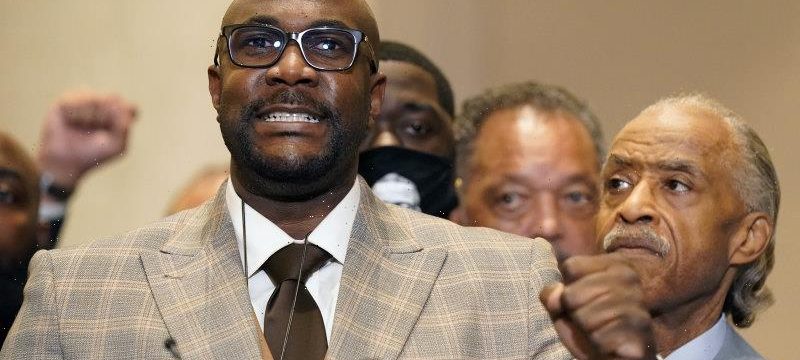“I can’t breathe.” Those fateful words of a dying George Floyd sparked months of civil unrest across the United States and beyond. His death, brought on by then police officer Derek Chauvin when he kneeled on Mr Floyd’s neck for more than nine minutes, was filmed by distressed onlookers. The graphic, disturbing vision became a lightning rod for a push for racial justice.
Just short of a year later, as anxious crowds stood outside the court, the presiding judge in Chauvin’s trial read out the jury’s verdict: guilty of all three charges, including felony murder. The former Minneapolis policeman, after having his bail revoked, was handcuffed and led away. Facing decades in prison, he will be sentenced in eight weeks.
The judge’s words led to an outpouring of tears and elation. Many fists were raised. US President Joe Biden led the reaction from political leaders: “This can be a moment of significant change. We have a chance to change the trajectory in this country.” Celebrities also weighed in. Oprah Winfrey said she was “relieved and emotional in ways I didn’t expect. I cried tears of joy as each verdict was read.”
Despite the clear video evidence, a guilty verdict was no sure thing. America’s justice system has in the past often fallen short when it has been called upon to adjudicate on police violence against mostly young black Americans. This time it came up with the right verdict, to the relief of us all.
This moment will be an important marker in the tortured history of racial justice in America. It has been a journey of many decades. But few would be under any illusion that one verdict offers resolution of a problem that is deeply embedded in US culture and history. As former president Barack Obama said: “True justice requires that we come to terms with the fact that Black Americans are treated differently, every day.”
That is borne out by the evidence. On the same day as the Floyd verdict, there was a fatal police shooting of a black teenager in Ohio. Already this year, American police have shot and killed 274 people. For the past year, that figure is close to 1000. As a proportion of the population, black Americans are killed by police at more than twice the rate of white Americans. That is not a statistical glitch. It has been going on for years.
Mr Biden made racial equity and police reform a central platform of his election campaign in the wake of Mr Floyd’s death, and this verdict gives him the political momentum to try to fulfil that promise. He will need whatever momentum he can find. Legislation that is before the US Congress to standardise police training, to keep problem officers from moving between departments without their records following them and to ban the use of chokeholds has so far struggled to gain enough support.
Real reform closer to home is also no easy task. But it is a challenge that Australian politicians should also be prepared to confront. The 30th anniversary of the landmark Royal Commission into Aboriginal Deaths in Custody has laid all too bare the lack of progress in the treatment of Indigenous people in this country.
After the guilty verdict in the US, one of Mr Floyd’s brothers proclaimed, “Today, we are able to breathe again.” For the family, the verdict will surely offer some respite. Mr Floyd’s death has already changed the world. How much, and how enduringly it has changed remains unknown, not just in the US but in all the countries that are trying to confront the evils of racial injustice from the past, and in the present.
Note from the Editor
The Age’s editor, Gay Alcorn, writes an exclusive newsletter for subscribers on the week’s most important stories and issues. Sign up here to receive it every Friday.
Most Viewed in World
Source: Read Full Article
